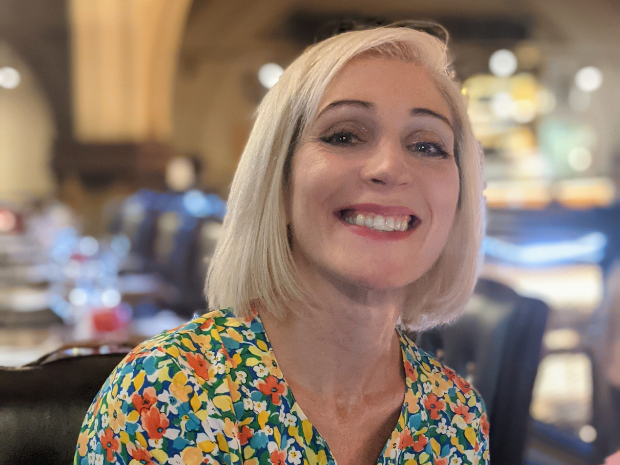
- Programme studied: MSc Human Resource Management
- Year of Graduation: 2010
- LinkedIn profile
Meet our October Alum of the Month, Charlotte Forsyth. Charlotte is the former Chief People Officer at WorldRemit, and a strategic HR leader working in global technology and media organisations. During COVID-19, Charlotte has led a global team to double the organisation's headcount whilst navigating the challenges of the pandemic and its impact on employee mental health.
Tell us about your career journey since graduating from LSE.
I was one of a handful of students who completed their MSc part-time, as I was already working in a recruitment role for HSBC. I was keen to move into a more generalist, or Human Resource Business Partner (HRPB) role, and studying my MSc in Human Resource Management enabled me to do this.
Since moving into a HRBP role, I have progressed into a Chief People Officer role, across global media and technology businesses. I have always been fascinated by people and consumer behaviour, especially in a digital world, whether it’s how people engage with brands, consume news and content , make connections on social media, or support loved ones back home. I've worked for Kantar, Wireless, Facebook and now WorldRemit.
I’ve also enjoyed setting up People functions from scratch or taking existing ones and making them more strategic and aligned to the business goals, and using People analytics to improve the employee experience, especially from an inclusion and diversity standpoint.
You have recently been nominated for the Digital Masters Award 2021 in the ‘Excellence in People & Talent’ category. Tell us more about your achievement and why this is important to you?
Whilst I doubt very much that I will win, I am very proud that the teams’ achievements have been recognised – not only did we enable significant business growth and double the headcount, but we improved the employee experience, remotely and globally. As a People Leader, it’s important to me that I deliver to both these stakeholders, whilst living out my values. I believe very strongly that the war for talent will be won by organisations who have not only pivoted to a digital model following the pandemic, but stand up for their colleagues by recognising their diverse lived experiences, and equipping them to manage their resilience and mental well-being. So I’m really pleased to have lead the team to scale both at pace and sustainably, by improving our approach to well-being, diversity and inclusion, and developing our talent.
How has COVID-19 affected your industry, and what do you see for the future of HR and employee experience?
Anyone working in HR during the pandemic will have again been balancing the impact on their organisations and colleagues, as well as what it meant personally for them. Many recruiters and talent professionals will have lost their jobs during 2020, and HR generalists will have had to implement these difficult decisions on behalf of the business, as well as support colleagues with their mental health and wellbeing.
As the economy recovers, the war for digital and tech talent is real, and employees will have recalibrated what they want from their worklife. There is a real opportunity for HR and recruitment to lead this dialogue. The future employee experience will be shaped by People teams using data, inclusion and empathy.
What is one piece of advice you would share with current students or alumni looking to follow in your career footsteps?
Studying the MSc Human Resources with such a diverse class really helped broaden my understanding of different people’s lived experiences, which is invaluable for a People Leader.
I would say that HR is an art, science and business all at the same time – so while having strong relationship skills and understanding people’s lived experience is key, you also need to be comfortable with analytics and insights, then align any People activity to the business strategy. My advice is to take every opportunity to understand people, both from their lived experience as well as what the data is telling you, and use the business strategy to ruthlessly prioritise your function’s activity. Most importantly though, find an organisation whose values are aligned to yours. HR can be a challenging and lonely place (albeit incredibly rewarding), and being in an environment where your values are misaligned with the culture is incredibly difficult. Good People Leaders can implement anywhere, but being in an energising, inspiring environment will make you a great one who can lead and thrive.
What is your fondest memory whilst you were studying with us?
My fondest memories are the late Professor Marsden’s Organisational Behaviour lectures – they were intellectually stimulating and challenging at times, but Professor Marsden demonstrated a kindness, patience and empathy for his students that shone through and enabled their learning. I will always remember my time in his classes and his kind smile fondly.
If you would like to offer your condolences or share your memories of Professor Marsden, you are welcome to do so here.